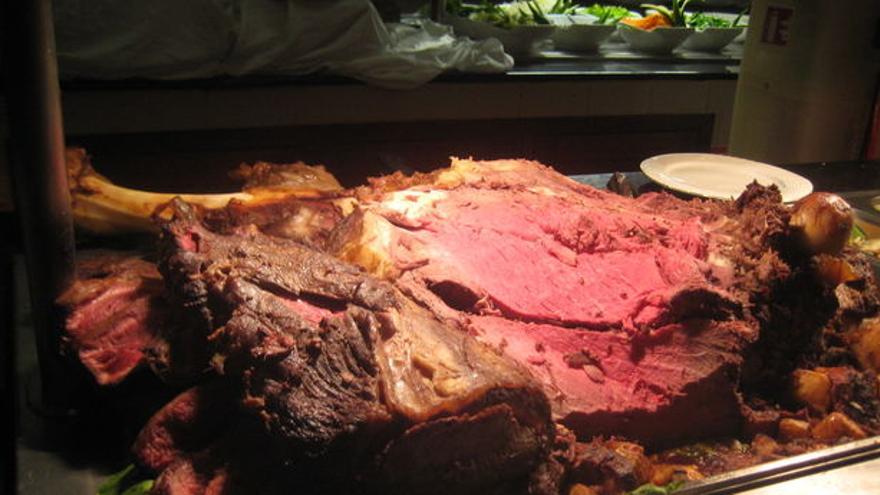
![]() 14ymedio, Pedro Corzo, Miami, December 31, 2023 — The common denominator of exiles and emigrants is to have left behind their country of birth and, most likely, to share the longings for the past, which for both can be overwhelming, although different. It’s worth saying that I learned this a very short time ago.
14ymedio, Pedro Corzo, Miami, December 31, 2023 — The common denominator of exiles and emigrants is to have left behind their country of birth and, most likely, to share the longings for the past, which for both can be overwhelming, although different. It’s worth saying that I learned this a very short time ago.
Nostalgia is one of the most personal and complex feelings. I experienced it a year ago, in a restaurant where I had dinner with my wife and with my brothers Morera and Xiomara and their wives, Kemel and Cristina.
I assimilated my nostalgia with difficulty. A Castro singer-songwriter had just died. I call him that because his songs, as Jose A. Albertini wrote, helped to silence the firing squads who were executing people. The music of this notable artist is admired by many compatriots, and one of those fans proposed to the entertainers that they perform a song in his memory.
It is worth saying that I was very upset, although I understood the situation when everyone told me, “those are his memories of that singer, try to understand, what you remember as bitter can be sweet for someone else.” This is the irreducible truth, because sometimes you remember something as charming until it becomes dangerous.
Art in general, along with sports, have been used by Island totalitarianism to manipulate the population and spread a smokescreen over the events in Cuba. In addition, artistic manifestations have been used to repress authors, as happened to Meme Solís. The performers I remember the most are Los Cinco Latino, The Platter and Luis Aguilé, a very Cuban Argentinian.
Art in general, along with sports, have been used by Island totalitarianism to manipulate the population and spread a smokescreen over the events in Cuba
Terror devoured us. The political situation was so demonic that a song entitled Adiós Felicidad (Goodbye Happiness) by Ela O’Farrill was considered counter-revolutionary. The author was arrested and humiliated, denounced by a communist professor, a friend of the family, for having composed a counterrevolutionary ballad, an accusation that determined her exile.
Christmas, from the 1960s, began to take place very discreetly. People stopped congratulating each other, or they did it privately. At the same time, there was very little to give away, and groceries were conspicuous by their absence or their prohibitive prices. However, the worst thing was that Christmas celebrations were politically incorrect, but not New Year’s Eve, which heralded the advent of the New Man.*
On January 6, the Three Kings Day celebration also went to jail or into exile. Toys, according to government propaganda, were regulated so that all children had them. The regime replaced customs and traditions. It transformed everything so that Fidel Castro could take over the collective imagination. More than a government, a new creed was imposed in Cuba.
I admit that, at Christmas, the homesickness is more severe. It is a period that, without being religious, imprisons me and puts me in a time machine that leads to sharing again with those who are no longer there in place and time and who will never return.
My last Christmas in Cuba was in 1980. On the Island it was practically banned. Somes churches discreetly decorated in accordance with the date. I remember a temple that did open its doors, located on Trista Street in the unforgettable Santa Clara.
Castroism arranged that the Christmas holidays were celebrations without devotional connotation for the people. The festivities would take place on July 25, 26 and 27
Castroism arranged for the Christmas holidays to be celebrations without a devotional connotation for the people, something that is spreading a lot today. The festivities would take place on July 25, 26 and 27, as part of its policy of destroying the national roots and transmuting the date of the assault on the Moncada barracks as the focal point of the new religion that was winning over Cubans.
The Christmas I remember the most is that of 1958, a year before the strategy of the Three Cs was put into practice – “zero cinemas, zero purchases (compras), zero cabarets” – and Fidel Castro’s July 26, with its rhythm of bombs and personal attacks that imposed terror, a situation that would drastically worsen months later.
The country was virtually at war. We were all frightened by the extreme violence on both sides. However, no one could imagine the magnitude of the coming disaster. The Republic, the whole nation, was nearing extinction: the work of the Castro brothers.
*Translator’s note: ’Che’ Guevara, in 1964, said that a revolutionary society (based on Marxism) needed to create a New Man with a “revolutionary consciousness” who wouldn’t rely on material incentives.
Translated by Regina Anavy
____________
COLLABORATE WITH OUR WORK: The 14ymedio team is committed to practicing serious journalism that reflects Cuba’s reality in all its depth. Thank you for joining us on this long journey. We invite you to continue supporting us by becoming a member of 14ymedio now. Together we can continue transforming journalism in Cuba.
